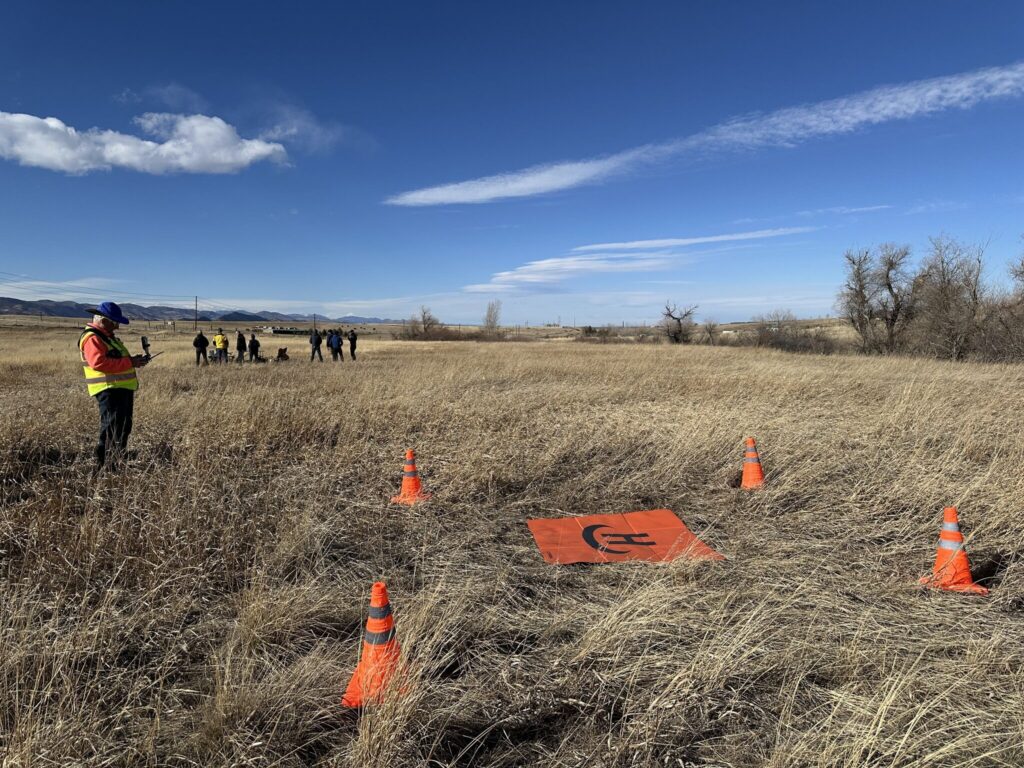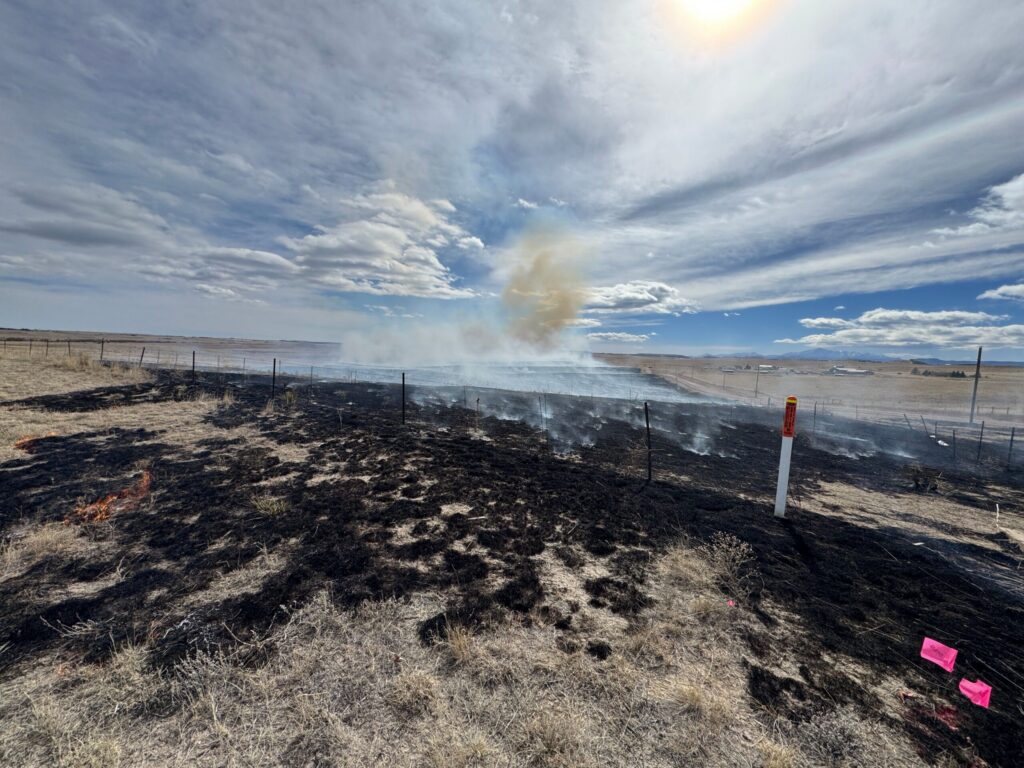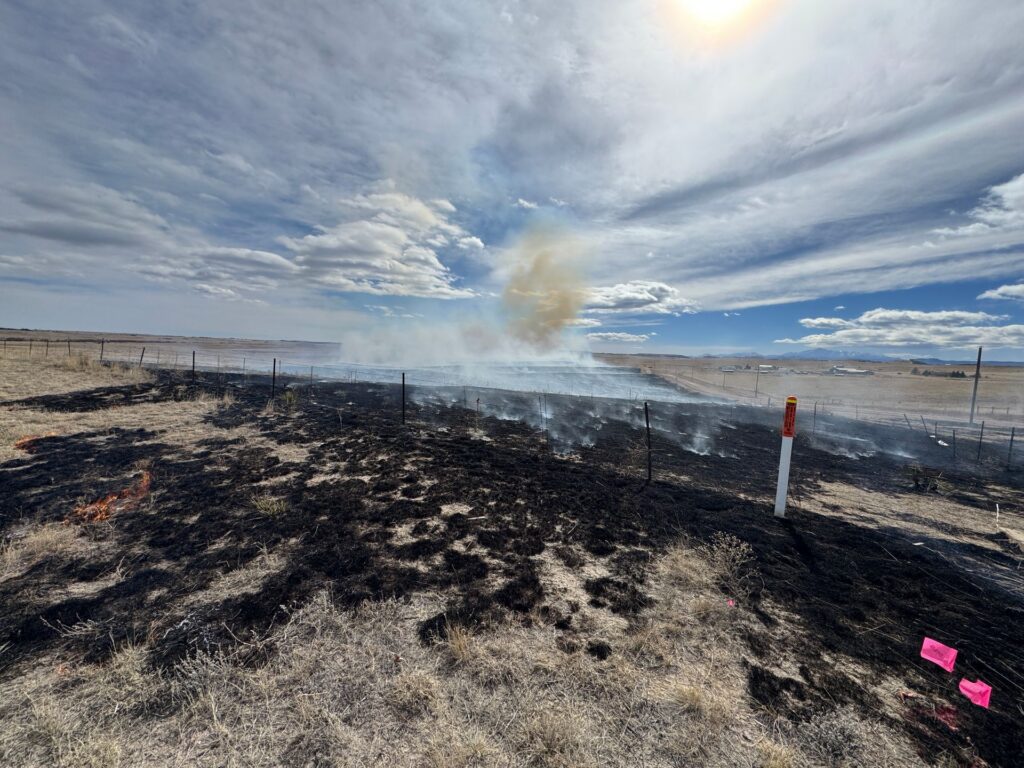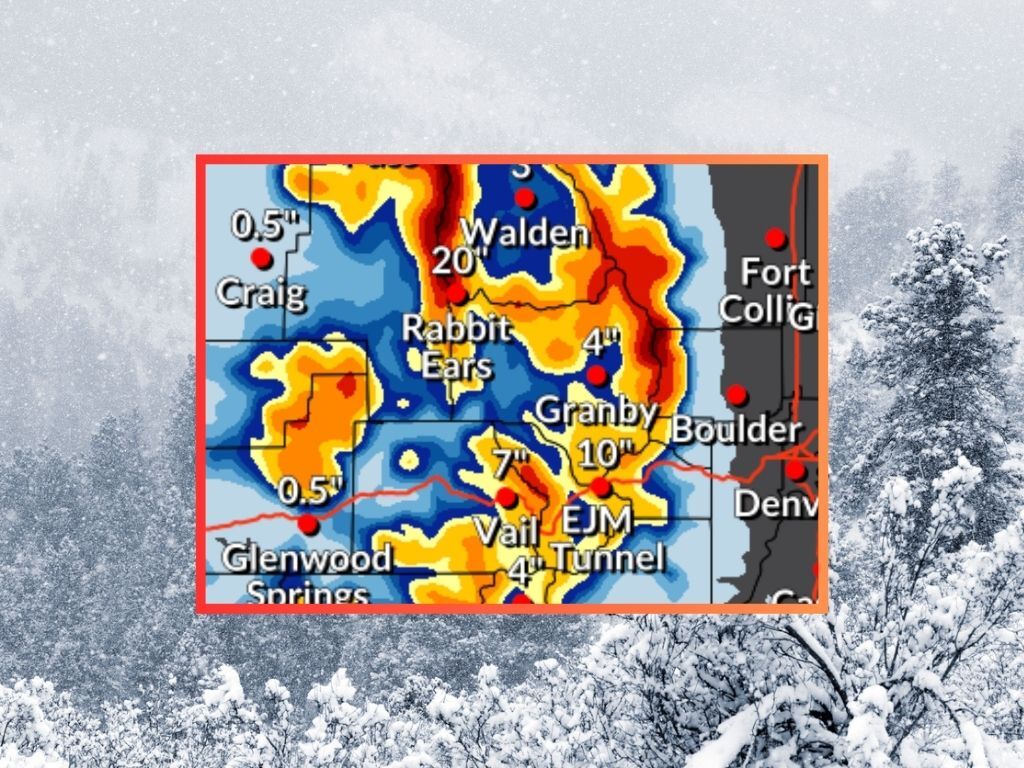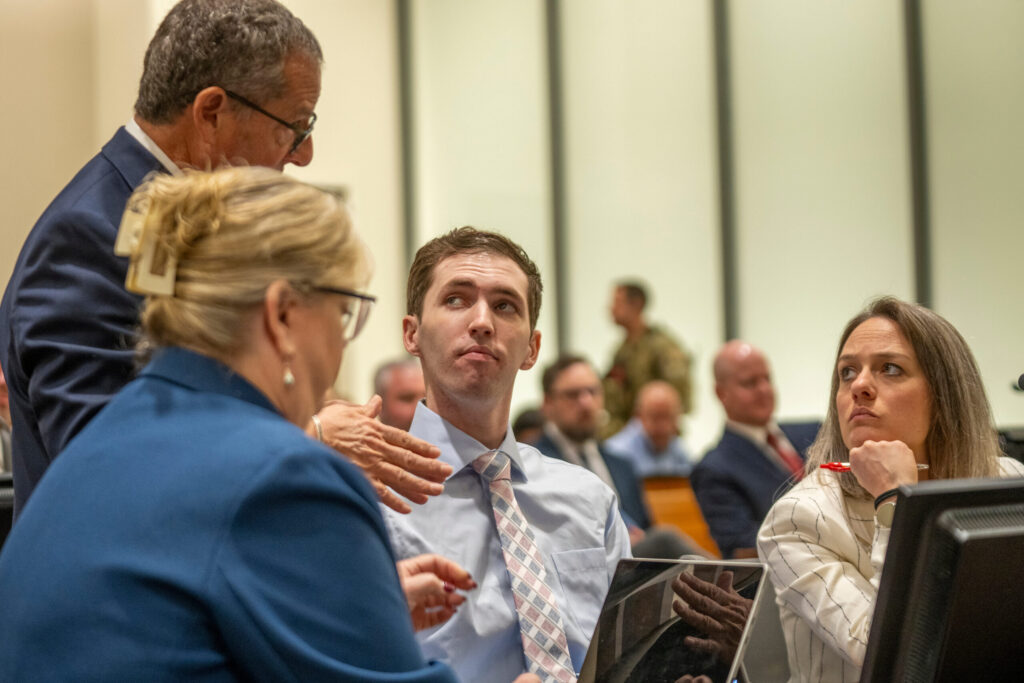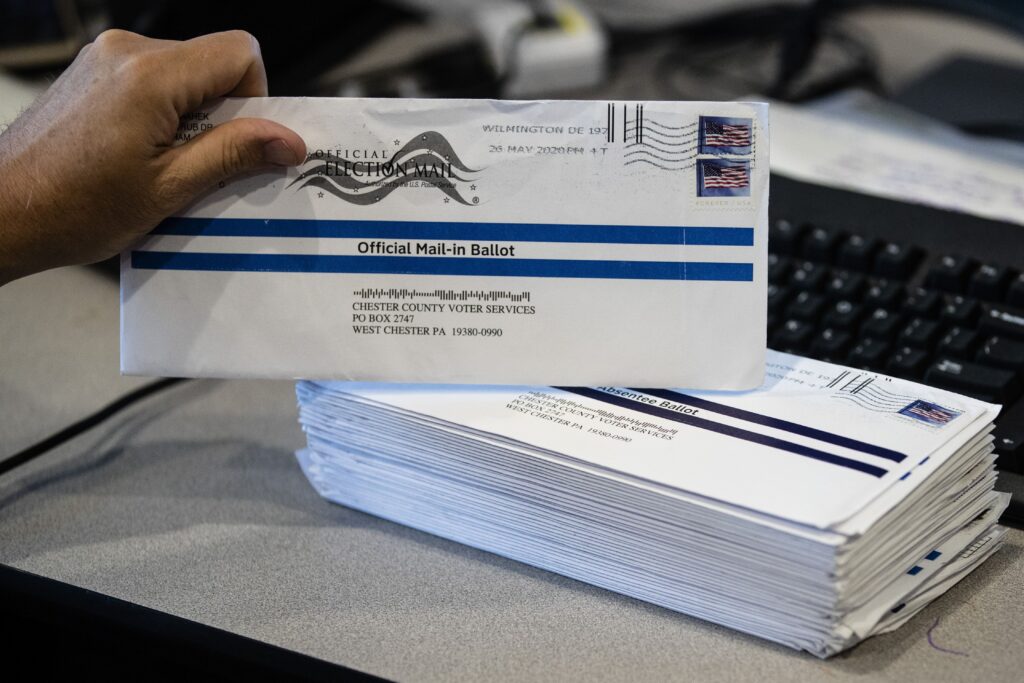Colorado is ‘well positioned’ for a US debt default, says state Treasurer Dave Young
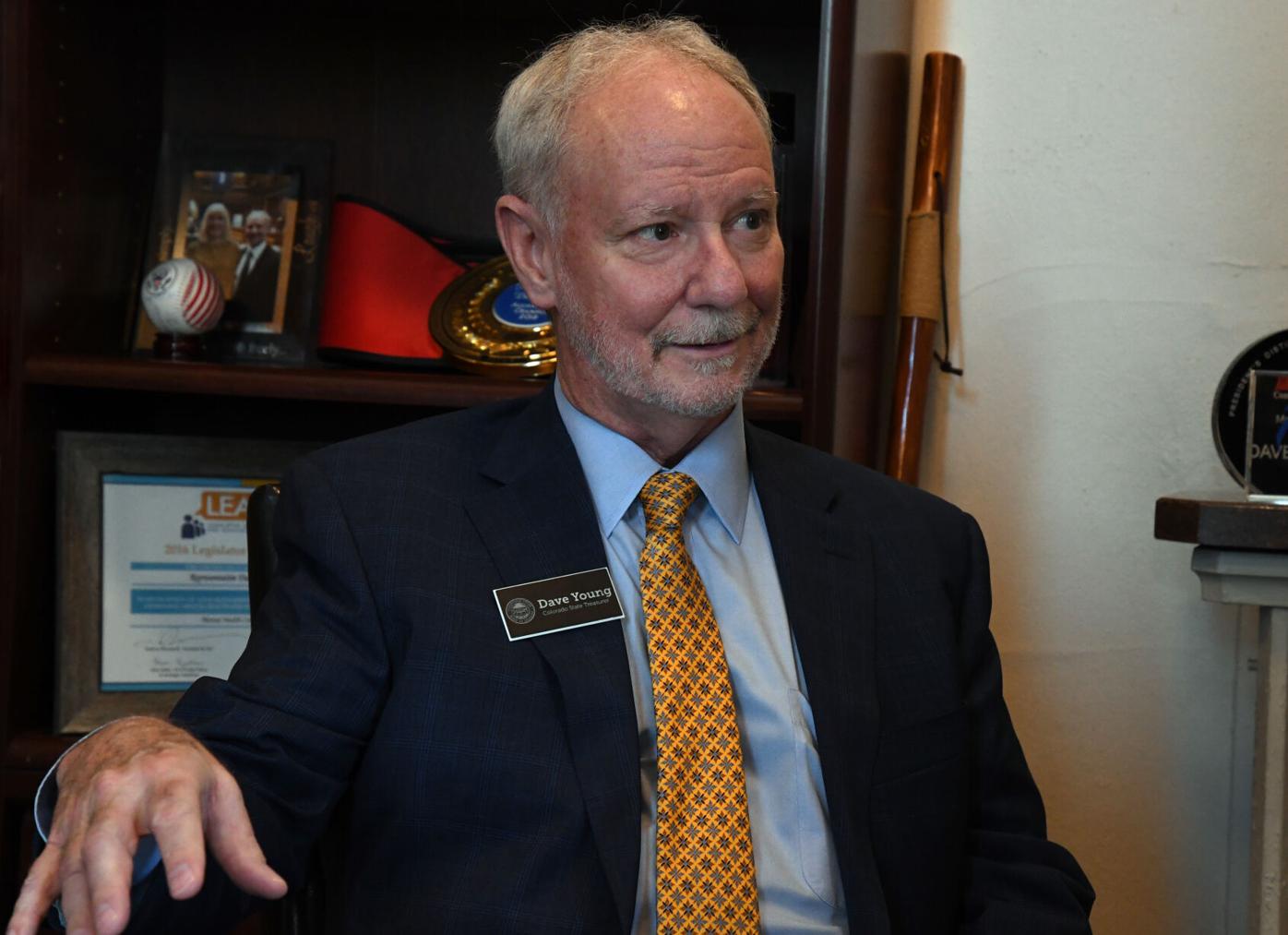
Kathryn Scott, special to Colorado Politics
With eight days to go until the United States is unable to pay its bills, the White House and Congress are still nowhere near an agreement on raising the national debt ceiling.
The U.S. reached its $31.4 trillion debt ceiling — the limit on how much the government can borrow — in January. Treasury Secretary Janet Yellen warned that the measures the government has used to pay its bills since then could be exhausted by early June, giving them until June 1 to come up with a solution.
Since 1960, Congress has raised the debt ceiling 78 times, most recently in 2021. President Joe Biden wants to raise the ceiling again, but Republicans in the U.S. House of Representatives have blocked the proposal for months, trying to cut government spending in exchange for raising the debt ceiling.
If the debt ceiling is not raised and the U.S. defaults on its debt for the first time ever, financial markets will be sent into turmoil, economists agree.
The numerous potential economic impacts would likely lead to a recession, including leaving tens of millions of government workers and Social Security recipients unpaid, making it difficult for businesses and citizens to borrow money, and downgrading the U.S. credit rating, leading to higher interest rates.
Even if the government defaults for less than a week before reaching a solution, 1.5 million people would lose their jobs, including approximately 10,200 people in Colorado, according to a CBS report.
With the clock ticking and debates between the White House and Congress ongoing, Colorado Politics talked to state Treasurer Dave Young about what a national default would mean for Colorado.
Colorado Politics: How would a federal default impact Colorado’s economy?
State Treasurer Dave Young: There’s really the near-term response and then a longer-range response.
In the near-term, speaking of the operations of state government, we’re not concerned. The Treasury manages the finances and the cash for the state collected by the Department of Revenue. And we do it in a very meaningful way. The No. 1 goal of our job is to ensure the safety of the taxpayers’ dollars. We do that by investing in a very conservative portfolio to make sure that we’re as protected as we can be. We’ve got a great team of investment officers that are constantly monitoring the markets. They’ve positioned the portfolio so that we are going to be able to meet our obligations months out in the future. So, regardless of what happens in Washington D.C., in the near-term, the taxpayer dollars here in Colorado are safe. We’re going to be able to meet our obligations: paychecks for state employees … all the different programs the state runs … PERA (Colorado’s Public Employee’s Retirement Association).
I do have concerns if this goes on further, however. If the debt ceiling’s not raised, the U.S. Treasury is not going to be able to meet all of its obligations. It’s not clear at this point how that might play out. There may be federal employees that don’t get paid, there may be veterans that don’t get their benefits, there may be Social Security recipients that don’t get their checks. … There’ll be an immediate impact on people that’s going to be felt in a whole variety of ways, some of which we can imagine, and some of which we’re not sure.
Also, we know that the United States is looked to as the most stable economy, one that everybody looks to meet all of its obligations. So, the confidence in the United States, and therefore in their Treasury bonds and notes, become shaken when this whole conversation goes on and if there is a technical default — when the money is there, but the federal government doesn’t have spending authority. … It does create economic waves throughout the world when that happens. Market volatility goes up, the credit rating of the country would be affected, that would cost us more on borrowing. … This is not good when the economy is somewhat volatile, as it is right now.
Certainly, Colorado’s economy is affected by, not only national, but global economic forces. So, if this goes on for a really long time, yeah, we’ll have some concerns. … It will ultimately have some impact, even on the state’s operations.
CP: Would a default have any impact on the state’s investment strategies?
Young: I don’t think it would. … Frankly, the investment team has been pretty close to being on high alert for over three years now. I came into office in January of 2019, and in March of 2020, the pandemic began and then the economic downturn that resulted from that. We’ve got a really top-notch team of investment officers here and, ever since the impact of the pandemic and economic downturn, they’ve been monitoring all these things in a very intense way to ensure that the taxpayer dollars are protected.
We have, at any given time, around $20 billion in the Treasury that we’re investing. Out of that, about $1.5 billion, right now, is in money market funds. While those aren’t cash, they’re close to being cash, and this is the money that we use to make sure that we’re meeting our obligations on a day-by-day basis. … 90% of our investments in money markets are in things like commercial paper. So, only about 10% is actually invested in Treasury bills. Those Treasury bills don’t mature until either October 2023 or sometime early in 2024. So, if they’re talking about a technical default in June, even our Treasury bills are not really affected in the near-term. And if they are further down the road, they only represent 10% of that money market situation. In the big scope of things, I think we’re well positioned to meet our obligations, not only in the near-term, but going out months and months in the future.
Between the conservative portfolio and the high attention the investment officers have been paying over many years, that’s positioned us well to be ready for this.
CP: Are you doing anything to prepare for a potential default?
Young: No, I don’t think we’ve actually changed any processes. The investment team has an internal meeting every other week where they really dig deeply into the global economics, the national economics, a lot of details about markets. They’re monitoring this all the time. I’ve been watching them do this now for well over four years now. They make adjustments depending on what’s happening. … The conversation around the debt ceiling has been on their radar for some time and, again, what they’ve done in response to many other things over the past three-plus years has positioned them well to deal with this. I haven’t seen them make really radical changes to anything that they’re doing at this point because of the debt ceiling conversation. And when I talked to them, they said, “No, we’re not concerned.”
CP: How concerned should individual Coloradans be about a potential default? Even if we’re in a good position as a state, federal government employees and people on Social Security and such would still be impacted.
Young: They will be. And, if the credit rating of the country is impacted and downgraded as a result of this, that’s certainly going to have an impact on all of us. We manage financing for large-scale transportation problems and construction problems out of the Treasury. If the country’s credit rating is impacted, that may have an impact on what kind of interest rates we’re able to get for those finances. It is hard to imagine what impacts it might have, the ripple effect of this. … Businesses that are trying to borrow money to expand or to make payroll are going to have to pay higher interest rates as this thing goes on. We don’t want to even think about businesses being forced to close because the economy gets so uncertain. … In the long-term, there’s an impact.
CP: How likely do you think a federal default is?
Young: I’ve been involved enough with negotiations to know that, whenever there’s a deadline, human nature brings it right up to the deadline. We’re all hoping as strongly as we can that they’re going to meet the deadline and that this crisis will be averted. But you never know. … It is really dependent on the personalities involved and their desire to actually come up with a solution that works for everybody in the country.
Before I was treasurer, I was a state representative and I was on the Joint Budget Committee for four years. While I didn’t have to deal with a budget as large as the federal government, we worked hard to come up with a state budget and we did so successfully. In those four years, we had split chambers, the Republicans controlled the Senate and the Democrats controlled the House. We didn’t let partisanship stop us from successfully completing a balanced budget year after year after year. I know it can be done, if the budget makers on both sides of the aisle sit down with good intent to come up with a solution. But amping it up on this artificial deadline and shaking the confidence in the U.S. government is really not a good plan.
CP: Do you have any advice for individual Coloradans about what they could do to prepare for a default?
Young: First and foremost, most important is for people to make a phone call or send an email to their U.S. representative and to the two U.S. senators encouraging a solution to this without crisis. That’s the No. 1 thing. But my advice for this is the same as I often give people: It’s always advisable to take a hard look at your budget and see if you can save some money. … It’s always a good day to start saving. The sooner, the better, regardless of what may be happening.







